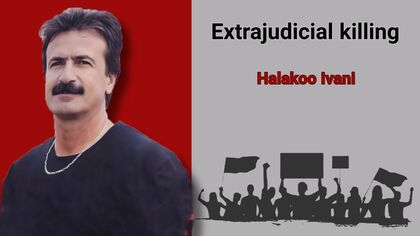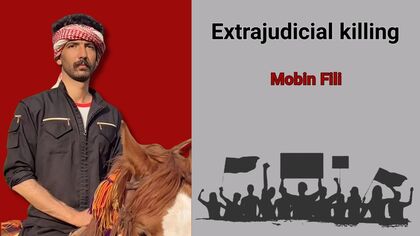Dollar dazzles as fearful Iranians hit panic switch
13:24 - 8 February 2012

Kurdpa - One measure of the profound anxiety now coursing through Iranian society can be seen on Manouchehri Street, a winding lane where furtive crowds of men gather every day like drug dealers to buy and sell US dollars.
The government has raised the official exchange rate and sent police into the streets to stop the black marketeers, but with confidence in Iran\'s own currency, the rial, collapsing by the day, the trade goes on.
\'\'Am I afraid of the police? Sure, but I need the money,\'\' said Hamid, a heavyset construction engineer standing with other illicit currency traders. \'\'Food prices are going up and my salary is not enough.\'\'
Glancing around him, he said he had converted almost all of his assets into dollars. Like many Iranians, he had also stockpiled months\' worth of rice and other staples.
The fuel for this manic trade is not an actual economic collapse - the new European oil embargo has yet to take effect and there is plenty of food on the shelves - but a rising sense of panic about Iran\'s encirclement, the possibility of war and the prospect of more economic pain to come.
The White House announced a further tightening on Monday aimed at freezing all Iranian assets under US jurisdiction and constricting the activities of Iran\'s central bank.
The last round of sanctions on Iran\'s central bank has begun inflicting unprecedented damage on Iran\'s private sector, traders and analysts say, making it so hard to transfer money abroad that even affluent businessmen are sometimes forced to board planes carrying suitcases full of US dollars.
Yet this economic burden is falling largely on the middle class, raising the prospect of more resentment against the West and complicating the effort to deter Iran\'s nuclear program.
The rising economic panic has illustrated the bitter divisions within Iran\'s political elite.
A number of insiders, including members of the elite Islamic Revolutionary Guards Corps, have begun openly criticising Iran\'s Supreme Leader, Ayatollah Ali Khamenei.
An aide of the President, Mahmoud Ahmadinejad, indirectly accused Ayatollah Khamenei of needlessly antagonising the West in ways that pushed down the rial\'s value, the latest sign of a rift between the President and the Supreme Leader.
Source - The New York Times
The government has raised the official exchange rate and sent police into the streets to stop the black marketeers, but with confidence in Iran\'s own currency, the rial, collapsing by the day, the trade goes on.
\'\'Am I afraid of the police? Sure, but I need the money,\'\' said Hamid, a heavyset construction engineer standing with other illicit currency traders. \'\'Food prices are going up and my salary is not enough.\'\'
Glancing around him, he said he had converted almost all of his assets into dollars. Like many Iranians, he had also stockpiled months\' worth of rice and other staples.
The fuel for this manic trade is not an actual economic collapse - the new European oil embargo has yet to take effect and there is plenty of food on the shelves - but a rising sense of panic about Iran\'s encirclement, the possibility of war and the prospect of more economic pain to come.
The White House announced a further tightening on Monday aimed at freezing all Iranian assets under US jurisdiction and constricting the activities of Iran\'s central bank.
The last round of sanctions on Iran\'s central bank has begun inflicting unprecedented damage on Iran\'s private sector, traders and analysts say, making it so hard to transfer money abroad that even affluent businessmen are sometimes forced to board planes carrying suitcases full of US dollars.
Yet this economic burden is falling largely on the middle class, raising the prospect of more resentment against the West and complicating the effort to deter Iran\'s nuclear program.
The rising economic panic has illustrated the bitter divisions within Iran\'s political elite.
A number of insiders, including members of the elite Islamic Revolutionary Guards Corps, have begun openly criticising Iran\'s Supreme Leader, Ayatollah Ali Khamenei.
An aide of the President, Mahmoud Ahmadinejad, indirectly accused Ayatollah Khamenei of needlessly antagonising the West in ways that pushed down the rial\'s value, the latest sign of a rift between the President and the Supreme Leader.
Source - The New York Times



